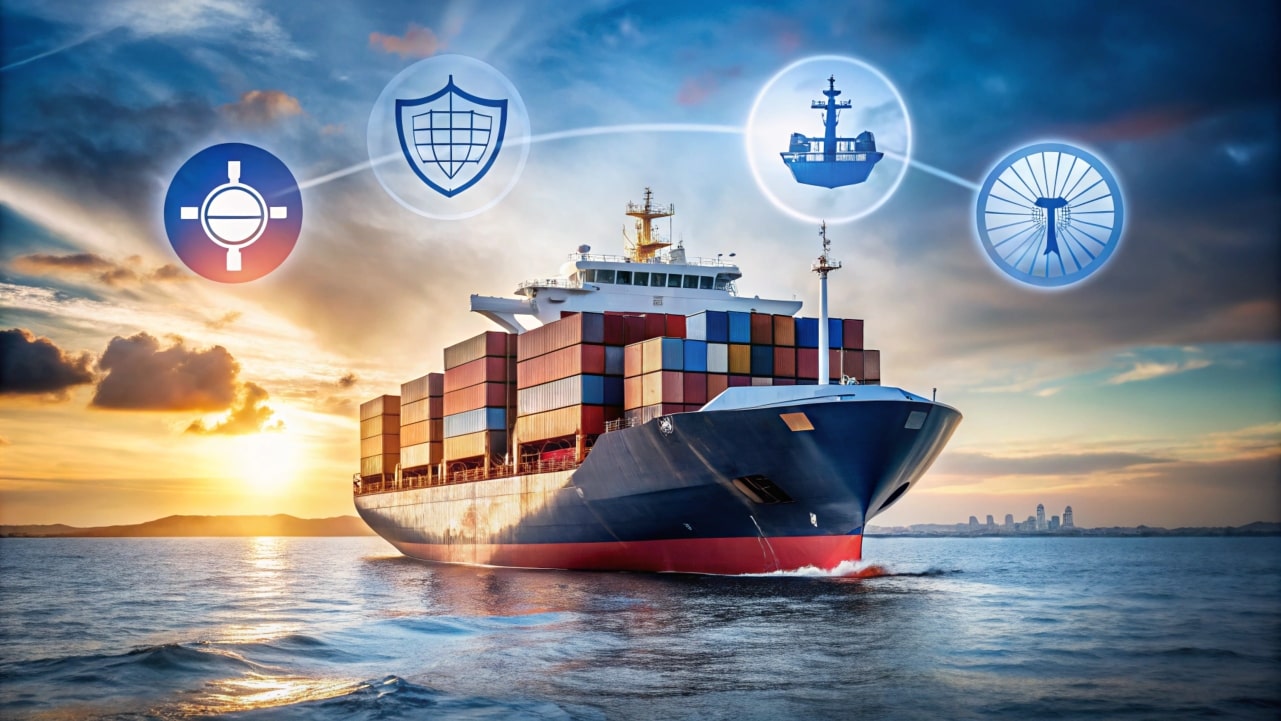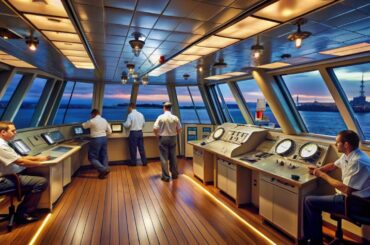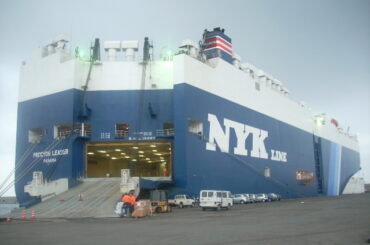As you navigate the complex world of marine insurance, it’s essential to understand the diverse types of coverage available to safeguard your maritime ventures. From hull insurance protecting your vessel’s physical integrity to liability insurance shielding against legal claims, each policy serves a distinct purpose in mitigating risks. But what sets these marine insurance policies apart, and how can they be tailored to suit your specific needs? Let’s explore the intricacies of these different types of coverage to guarantee your maritime operations are adequately protected.
Hull Insurance
Hull insurance is a fundamental component of marine insurance policies, providing coverage for the physical structure of the vessel.
When considering hull insurance, it’s important to understand the significance of regular hull maintenance. Proper upkeep not only guarantees the seaworthiness of the vessel but also plays a significant role in determining the hull valuation, which is used to calculate the insurance premium.
Regular hull maintenance includes inspections for any signs of damage, corrosion, or wear and tear. Timely repairs and upkeep can prevent minor issues from escalating into major problems that may lead to costly claims.
Additionally, accurate hull valuation is necessary to make sure that the vessel is adequately insured for its current market value.
Cargo Insurance
Ensuring the safe transport of goods across the seas is a vital aspect of maritime trade, making cargo insurance a key component of marine insurance policies. Marine cargo insurance provides coverage for the loss or damage of goods during transit by sea, offering protection against a variety of risks such as theft, rough weather conditions, or accidents.
This type of insurance is essential for both exporters and importers to safeguard their financial interests in the event of unforeseen circumstances.
Cargo claims are a common occurrence in the shipping industry, with issues ranging from damaged goods to lost shipments. Having a thorough cargo insurance policy in place can mitigate the financial impact of these claims on businesses.
It’s important for companies involved in international trade to carefully assess their cargo insurance needs based on the nature of their goods, the shipping routes used, and the potential risks involved.
Protection & Indemnity (P&I) Insurance
Marine insurance policies encompass various types of coverage to address the diverse risks faced in maritime trade.
Protection & Indemnity (P&I) Insurance provides coverage beyond the scope of traditional marine insurance. P&I coverage options typically include protection for third-party liabilities such as damage to docks, injuries to crew, pollution incidents, and legal expenses. This insurance is fundamental for shipowners and operators to protect themselves from unforeseen events that may occur during their operations.
When it comes to the P&I claims process, it’s important to notify the insurance provider promptly in case of an incident. The insurer will then assess the claim, investigate the circumstances, and determine the coverage applicable.
It’s essential to provide all relevant documentation and cooperate fully during the claims process to guarantee a swift resolution. Understanding the P&I coverage options and being prepared for the claims process can help mitigate risks and assure smooth operations in the maritime industry.
Freight Insurance
Safeguarding your cargo during transit is a critical aspect of maritime trade, and Freight Insurance plays a pivotal role in mitigating the financial risks associated with potential losses or damages.
Freight Insurance is designed to protect goods in transit against various perils such as theft, damage, or loss. This type of marine insurance provides coverage for the value of the goods being transported, offering peace of mind to both shippers and receivers.
Freight Insurance helps address freight risk, which refers to the uncertainties and potential hazards that cargo faces while in transit. By obtaining freight coverage, you’re safeguarding your financial interests in case of unforeseen events that could result in damage or loss of your cargo.
Insuring your freight guarantees that you’re financially protected and can recover the value of your goods in case of any unfortunate incidents during transportation. It’s essential to carefully assess your freight risk and choose appropriate coverage to mitigate potential losses effectively.
Liability Insurance
Covering potential liabilities arising from maritime activities, Liability Insurance is an essential component in the domain of marine insurance. This type of insurance provides coverage for both commercial liability, which includes protection against claims for property damage or bodily injury caused by the operation of a vessel, and personal liability, which safeguards individuals against claims arising from their ownership or operation of a boat.
Commercial liability coverage under a marine liability insurance policy is vital for businesses involved in maritime activities, as it shields them from the financial repercussions of accidents or incidents that may occur during operations.
On the other hand, personal liability insurance protects individuals, such as boat owners, against potential legal claims that may arise from their use of a vessel.
Having liability insurance in place guarantees that businesses and individuals in the maritime industry are protected from unforeseen circumstances that could result in significant financial losses.
It’s a proactive measure that mitigates risks associated with maritime activities, offering peace of mind and financial security.
Frequently Asked Questions
What Are the Common Exclusions in Marine Insurance Policies?
Common exclusions in marine insurance policies include cargo damage due to improper packaging, wear and tear, and delay in transit. Policy limitations often cover specific risks, such as war, piracy, and nuclear accidents, which require separate coverage.
How Is the Premium Calculated for Marine Insurance?
When calculating your marine insurance premium, factors like the vessel’s value, type, usage, and navigational area are considered. Insurers conduct a thorough risk assessment to determine the premium that reflects the level of risk involved.
Are There Specific Requirements for Insuring High-Value Cargoes?
When insuring high-value cargoes, specific requirements must be met. These may include detailed cargo assessments, security protocols, and specialized coverage options. Ensuring compliance with these insurance requirements is essential for protecting valuable shipments.
Can Marine Insurance Cover Losses Due to Piracy?
Yes, marine insurance can cover losses resulting from piracy. However, coverage limits may apply, and specific policies tailored to piracy risk might be necessary to guarantee adequate protection for your high-value cargoes in such scenarios.
What Happens if the Insured Vessel Is Involved in Illegal Activities?
If your vessel is involved in illegal activities, your marine insurance might not cover damages or liabilities. Insurers typically exclude coverage for losses arising from unlawful actions. Understanding vessel liability and policy terms is essential to avoid financial risks.






